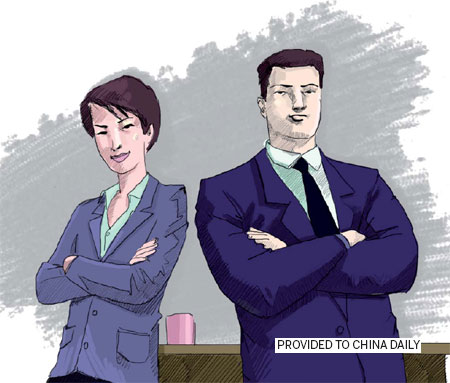
'To be a boss is glorious." What, in truth, could be more glorious than fanning oneself with 100 yuan ($16, 12 euros) notes while being presented expensive cigarettes by obsequious underlings? These are the advantages that being a laoban brings: buckets of renminbi and buckets of face; the two things that make up the sinosphere's central axis.
China is the land of the boss. Coal bosses, state-owned company bosses, university bosses, even village bosses and public lavatory bosses. People in the service industry will call you laoban even if you are not one, not unlike the English "you are the boss", only more ubiquitous. You do not even need the striped polo shirt and the shiny leather belt, the de facto status signifiers of some 10 years ago. The trick is to get the "movers and shakers" of modern China to recognize your boss credentials.
To really talk like a Chinese laoban, you will first need to understand the psychology.
Blagging for beginners
Your company is going places. It is the next Tencent or Alibaba (at least in your head). The trick is you need to convince everyone else that this is the case. The simple way to achieve this smokescreen of scale is to talk your company up. Why actually do it when you can just say it? Present hyperbole as hard fact.
Talking like a boss therefore involves the well-documented arts of the two Bs: boasting (吹牛 chuīniú) and blagging (忽悠 hūyou). The aim of every boss is to make their organization bigger and it makes perfect sense therefore that one of the most common phrases they utter is "to get bigger and stronger"
(做大做强 zuò dà zuò qiáng).
If we want to get bigger and stronger, we must take effective measures, seize opportunities, and work actively to open up international markets.
Wǒmén yào zuò dà zuò qiáng, jiù yào cǎiqǔ yǒulì cuòshī, zhuā zhù jīyù, jījí kāituò guójì shìchǎng.
我们要做大做强,就要采取有力措施,抓住机遇,积极开拓国际市场。
Similarly, the lexicon of a boss should be replete with cliched ways of stirring up people's emotions, battle cries calling white-collar workers to action:
We must strive all out to achieve great glory!
Fèn fā tú qiáng, zài chuàng huīhuáng!
奋发图强,再创辉煌!
In the world of the boss, things are not just "completed", they are always "successfully completed" (圆满完成 yuánmǎn wánchéng) - every project, every meeting, every letter opening or ribbon cutting. The addition of the adverb 圆满 (yuánmǎn) just serves to bring home what a great achievement it all is.
We recommend:
